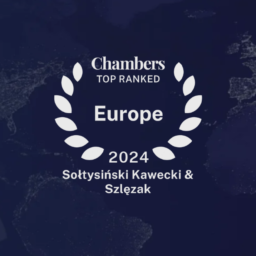Upcoming changes concerning how foreigners are employed
The law on the conditions of admissibility of entrusting work to foreigners on the territory of Poland is still awaiting the President’s signature. The law will introduce major changes in immigration law that will significantly affect the way work is legalised. What should employers pay attention to?
- Liquidation of the ‘labour market test’ – it will no longer be necessary to obtain information on the local labour market before obtaining a work permit. However, the local authority (Polish: Starosta) will have the possibility to create a list of professions in which they refuse to issue a work permit.
- Full digitalisation of work permit procedures – applications for work permits will only be submitted electronically. This change is expected to streamline the work permit application process.
- Time limits in work permits for newly established employers – for employers who have been in business for less than a year, a work permit will be issued for a maximum of 1 year.
- Obligation to provide the authority with a copy of the foreigner’s employment contract – before entrusting work to a foreigner, the employer will be obliged to provide the authority issuing the decision with a copy of the contract concluded with the foreigner.
- Increased penalties for employers – the fine for illegally employing foreigners will range from PLN 3,000 to PLN 50,000.
- Refusal to issue a work permit – the immigration office may refuse to issue a work permit to employers who are in arrears with social security contributions, or who carry out business activities only to facilitate the entry of foreigners into Poland.
- Retention of foreigners’ residence documents – the law clarifies employers’ obligations to verify and retain foreigners’ residence documents. The documents must be kept for the entire period of employment and for 2 years after employment is terminated.
The law is expected to enter into force on the first day of the month following 14 days after its announcement.
Supplementary maternity leave
From 19 March 2025, parents of children hospitalised after birth can benefit from supplementary maternity leave. Parents of premature babies, as well as babies born on time but hospitalised after birth for health reasons, therefore benefit from the change in legislation. Supplementary maternity leave ranges from 8 to 15 weeks, depending on the health situation of the newborn. During this time, the parent taking the maternity leave will receive the full benefit. The practice of applying the new regulations has raised doubts about the principles of granting supplementary leave. To this end, the Ministry of Labour and Social Policy has published a position paper providing answers to the most frequently asked questions.
The Ministry’s position shows that:
- supplementary maternity leave is closely linked to maternity leave. If the mother was not entitled to maternity leave (e.g. due to lack of employment), the father cannot take the complementary leave,
- it is possible for parents to take parental leave and supplementary maternity leave at the same time. The father of the child may take parental leave while the mother is taking supplementary maternity leave. Parental leave must be granted in one part or in a maximum of five parts and must end by the end of the calendar year in which the child turns six years old,
- a parent may request a shorter period of supplementary maternity leave than that specified in the medical certificate. However, the supplementary leave must be taken in one part, with no possibility of division, and
- the employee may resign from the supplementary maternity leave at any time by submitting a request to the employer.
Changes for EU Blue Card holders
Legislative work is underway to amend the regulations for EU Blue Card holders. The proposed changes are aimed at implementing Directive 2021/1883/EU. The changes will be of significant importance for employers who employ foreigners in skilled professions. How will the immigration rules change in this regard?
- The procedure for obtaining a ‘Blue Card’ is to be simplified. It is planned to shorten the period of professional experience that a foreigner will have to demonstrate when applying for this type of residence card. Currently, it is necessary to demonstrate 5 years of professional experience. After the changes, this period (for certain professions) is to be 3 years,
- Holders of the ‘Blue Card’ will be able to carry out business activities in Poland on the same basis as EU citizens,
- Blue Card holders will be able to benefit from long-term and short-term mobility, and
- The Act will introduce the definition of professional activity for the Blue Card holder which will include, among other things: improving qualifications, attending meetings, and negotiations or conducting negotiations.











